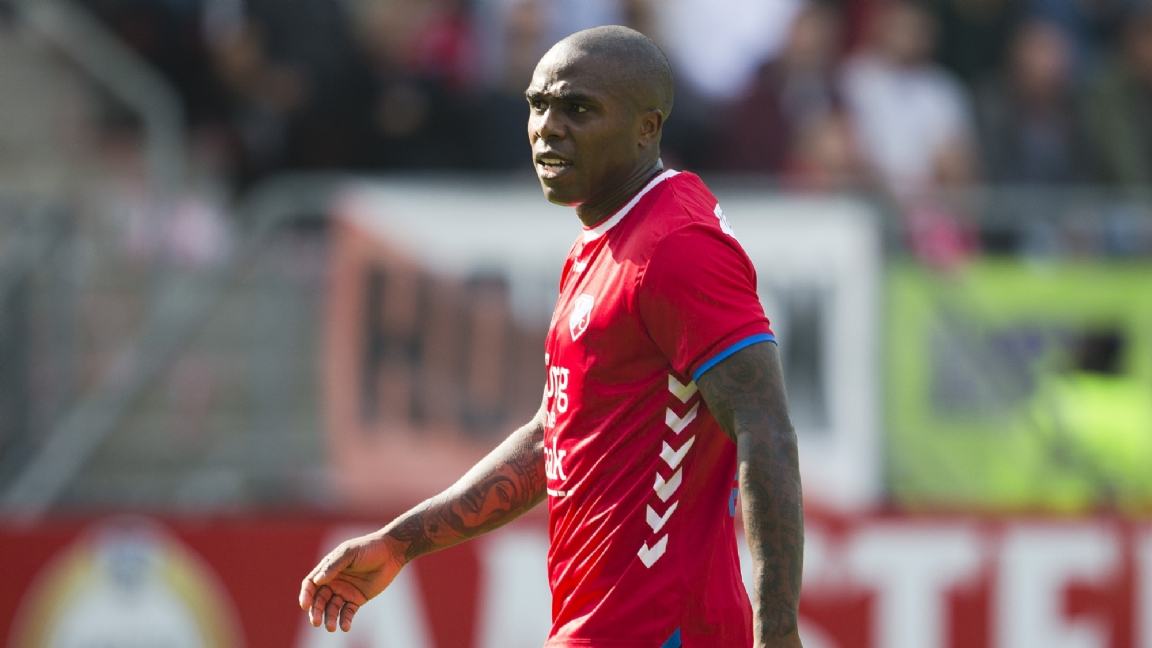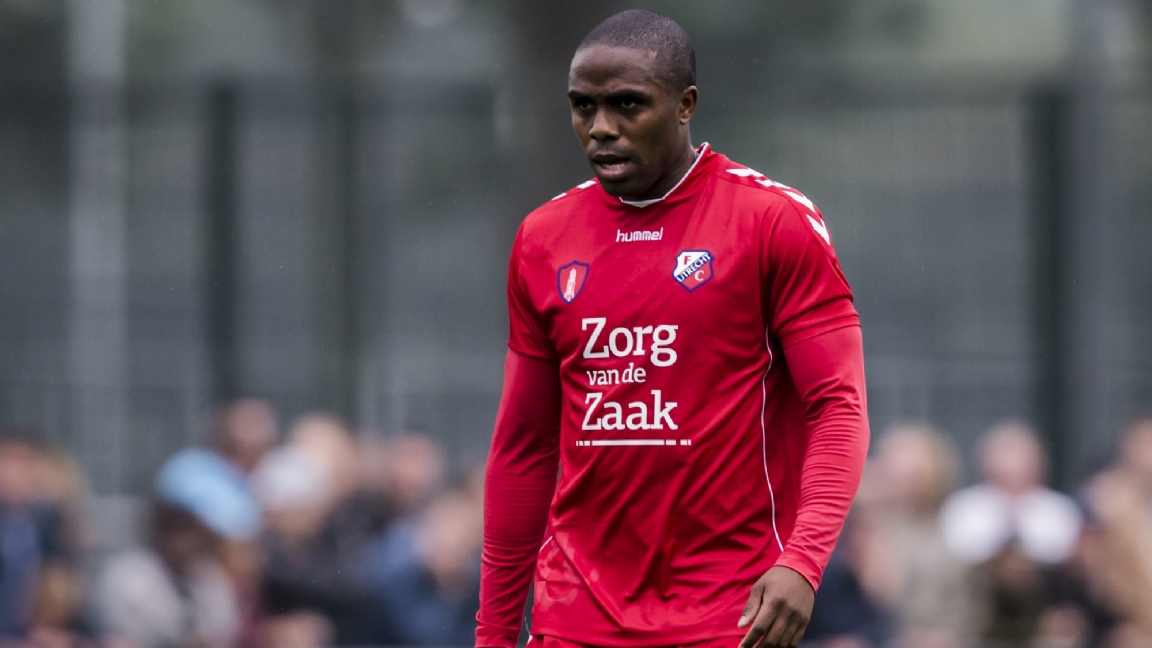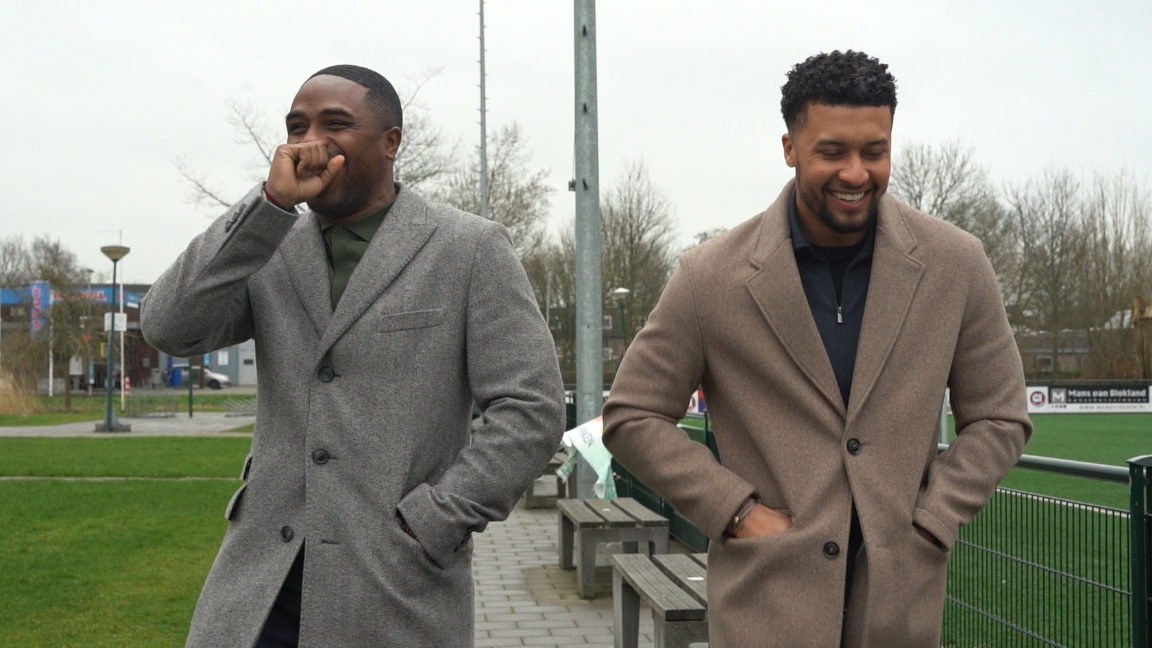![]()

After a high-profile football career at various clubs at home and abroad, Edson Braafheid and Gianni Zuiverloon feel compelled to give something back. Braafheid reached the final of the World Cup in 2010, Zuiverloon went through the entire youth academy of Feyenoord. Both had to contend with mental complaints. Loneliness, fear of failure, dealing with injuries. It even led to depression in Braafheid. By sharing their experiences with others, they hope to make young people and young adults more resilient.
By Mart Oude Nijeweeme
When we are waiting for Braafheid and Zuiverloon in the canteen of amateur association FC Abcoude, the phone suddenly rings. It’s goodness. Where he can park the car. “You have to cross the bridge,” says Stefan, a boy who accompanies them at the foundation. It has been quite some time since the former player of FC Utrecht, FC Twente and Bayern Munich entered the sports complex of his youth club. “I have been able to play many great matches here,” he tells chairman Winand Paulissen once he arrived.
No one could have imagined that Braafheid’s career would take off like that. His drive to succeed led him to the 2010 World Cup final in South Africa, but that was certainly not without a struggle. “Everyone has to deal with mental blocks. I’ve also had to deal with that in my life, in my career,” Braafheid tells Football zone† For the defender, that already started with his amateur association. “I came into a team with a trainer who liked to shout. Before I got the ball, people were already shouting what I had to do. I didn’t have the opportunity to let my own insight go free. That has a lot of impact on had me, which made me very insecure. The game that I loved very much, suddenly wasn’t fun anymore.”

Edson Braafheid played two periods at Utrecht, between 2003-2007 and 2016-2018.
Goodness decides to share his personal experiences with others. After a phone call with his good friend Gianni Zuiverloon, the two set up their own foundation. “I wish there was someone who had experienced all of this and could guide me through it,” said Zuiverloon. “I am very happy that we can now be the one who can act as an experience expert and give advice. We do not do this alone. Together with mental coaches, psychologists and cultural anthropologists we give workshops that strengthen mental health and resilience. We hope to roll out workshops in as many schools, sports associations and companies as possible.”
Zuiverloon also struggled with mental issues throughout his career. At Feyenoord, for example, where after a training camp as a seventeen-year-old he was told that he had to run in circles. “Erwin Koeman was our trainer. We went to England for a training camp and I didn’t play that match. I had to warm up for a half, but couldn’t get in. The next day we returned to the Netherlands. We had to finish. Those who hadn’t played I had to walk extra. I was very angry that I hadn’t played, which makes sense. You always want to play. But I also had to walk, and I didn’t agree. Then I went on a rampage. At that moment I had someone needed to guide me in my actions and reactions, so that I could make better choices.”
Watch the report with Edson Braafheid and Gianni Zuiverloon here
The same happened to Zuiverloon in England, where he was mentally tested while playing for West Bromwich Albion and Ipswich Town. He felt lonely, didn’t know how to handle the immense pressure. “Something had happened in private, but I couldn’t tell anyone my story. I lost my starting spot and it went downhill. Meanwhile, I was portrayed by the media as someone who would not be mentally strong.” Zuiverloon eventually returned to the Netherlands via a detour, where he tore his ankle ligament last year. A call from Braafheid, late last year, got him thinking.
“I knew he had torn off his ankle ligaments”, Braafheid looks back on the phone call in question. “He was going through a difficult period. I asked him how it went. ‘Good’, he said. But of course that was not the case. A serious injury is mentally hard. Especially if you have something in mind and want to do it. A conversation that was supposed to last ten to fifteen minutes, eventually lasted three hours.” Braafheid and Zuiverloon played against each other and with each other, at Jong Oranje. They kept in touch throughout their career.

Edson Braafheid and Gianni Zuiverloon became friends during their football career.
“You know it in the football world. You have a good friendship with some guys, others don’t,” continues Braafheid. “I saw that he was dealing with the mental and he knew that about me. It’s a sensitive subject. People don’t talk about it easily because we live in a world where it can be used against you if you make yourself vulnerable “People are afraid of that. You expose yourself. In addition, the football world is a macho world. Don’t complain, just keep going. We want to change that.”
According to Braafheid, social media plays an important role these days. “I think young players have to be prepared for that. In the beginning it is fun and exciting, but that quickly turns into having to perform constantly. Always meet the expectations of the audience, your teammates and the trainer. It becomes very very underrated. Fortunately I have always had the support of my family. The support to keep doing it. My father always asked how I thought it went. If I still liked it and enjoyed it. That’s important at that age.”
Zuiverloon mainly calls on people to open up the subject for discussion. “We have only been live for a month, but we are already getting so many requests. From guys who need an outlet and ask us how we did it. That is already a first step towards being vulnerable and becoming mentally healthy. Talking about it with someone, that is so important. When it is successful? It is already successful if we have been able to make one person mentally stronger.”
If you want to know more about the Play Mental Foundation, you can visit the website